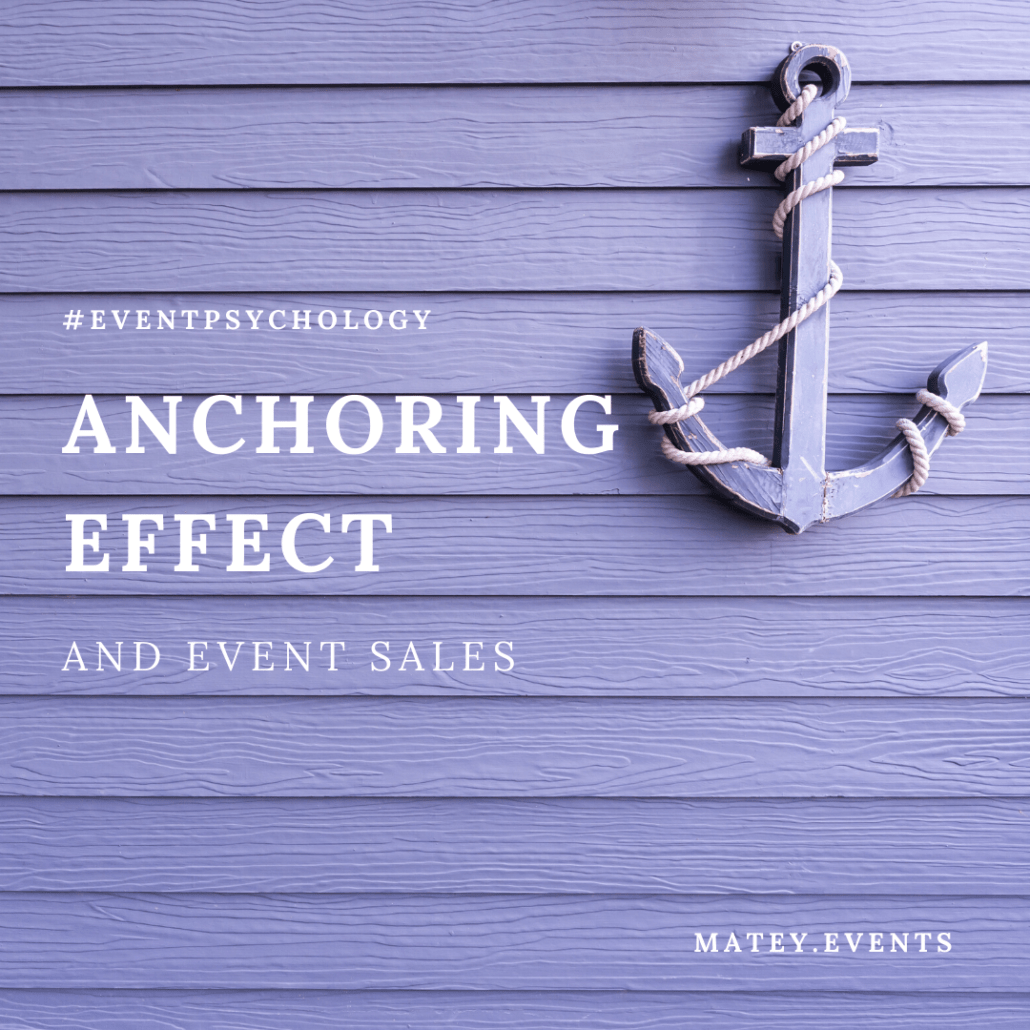As pricing and increasing sales for online events is currently a hot topic, I thought it’s a good time to remind about anchoring effect.
In 1974 Kahneman and Tversky did an experiment in which they first asked participants to spin a wheel containing the numbers 1 through 100 (but participants were not told that the wheel was rigged to land on either 10 or 65). Then the scientists asked them whether the percentage of African countries that belong to the U.N. was higher or lower than the number on the wheel, and last, they asked what each participant’s own estimate of the percentage would be.
The results indicated what is now known as anchoring effect.

What scientists found was that the number on the wheel had a pronounced effect on the participants’ answers: those who landed on 10 on the wheel, estimated the African countries membership % as 25% on average. Those who had 60 on the wheel, said it was around 45%.
In other words, the number on the wheel (being random) served as ‘an anchor’ for a completely unrelated issue, and impacted people’s answers. Once the anchor is set, we interpret information around that anchor. Price anchors are the most used (in retail etc) and known to help increase sales.
So think about how you can use anchoring when selling your (online) events? A couple of tips:
- it can show a discount price based on a (higher) original price, like they typically do in retail, or

- in fact, it can be any number placed next to your price (e.g. number of tickets sold) – on a subconscious level it’ll work as an anchor.
UPD: another, more recent, and great example of using anchoring when selling online event came from EventMB – the pricing starts at $25 and that would definitely be what attendees use as reference (on a sub-conscious level of course) when they decide what they’d like to pay for the event.

Finally, consider what this one experiment of comparing different price anchors revealed:

********************************
I share science-based tips and practices that can help event planners improve their events. If you are interested in event psychology approach, check out my online course, Event Psychology Lab.
For more event psychology articles and related research papers, head to this section.



